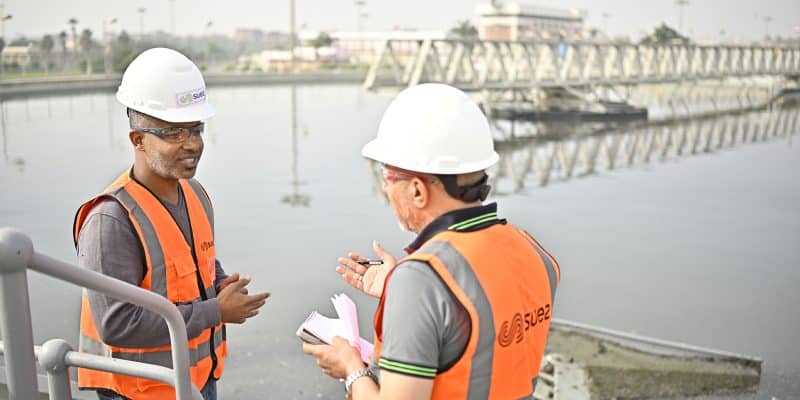SUEZ, which has a strong presence in Africa, has published its roadmap detailing the Group's new sustainable development guidelines in three priority areas: climate, biodiversity and social responsibility.
It was eagerly awaited. The SUEZ Group’s roadmap for the coming years is now known. With a historical presence in Africa, the Paris-based group intends to deploy its 2023-2027 strategy through several key pillars in line with current concerns.
First of all, the climate. SUEZ plans to contribute to the decarbonisation of energy, by increasing the share of renewable energies in the Group’s total consumption to 70% worldwide, and to contribute to the reduction of greenhouse gas (GHG) emissions from its sites. These investments will enable SUEZ to reduce its own GHGs and those of its customers: a reduction of almost 40% in the emissions of its Water activities by 2030 and more than 25% in the emissions of its Waste activities by 2030 (excluding energy from waste).
As part of its 2023-2027 strategy, the group, which employs 44,000 people, will invest an additional €40 million in its R&D programme dedicated to carbon capture and storage (CCS) in its waste-to-energy activities. Over the next four years, SUEZ intends to adapt the priority and vulnerable sites operated by the Group to the effects of climate change.
Priority to the preservation of biodiversity
Biodiversity is also one of the Group’s priorities for the coming years. The environmental specialist will accelerate the fight against soil artificialisation by doubling the amount of renatured land on the sites it operates. The Group will systematically use local species in all its restoration and landscaping operations.
By 2027, SUEZ will propose a water saving programme in all its new drinking water contracts, covering up to 10% of the volumes delivered. The Group is also aiming for 100% of its drinking water business in water-stressed areas to be covered by a water saving plan.
Employee shareholding
The development of employee shareholding is also one of SUEZ’s priorities for the coming years. After a first stage in 2022 which brought employee shareholding to 3% of the company’s capital, the Group will increase the share of employee shareholding in its capital to 10% by 2029.
Commitments in the area of social responsibility also include reaching the goal of zero serious accidents in the area of health and safety, and the implementation of social integration programs that should benefit 5,000 people. Emphasis will be placed on contributing to local development by increasing the share of local suppliers in the Group’s projects.
Article written in partnership with SUEZ





